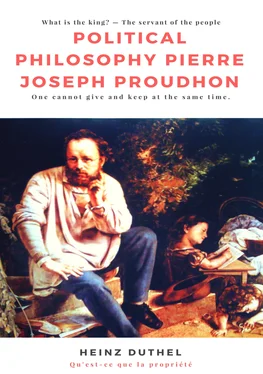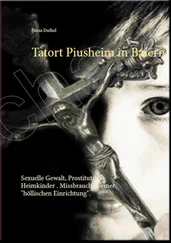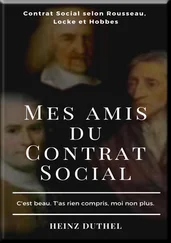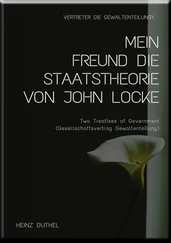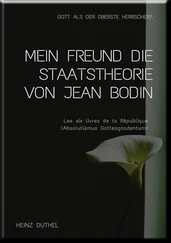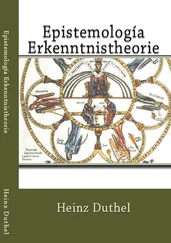1 ...6 7 8 10 11 12 ...20 All at once a man appeared, calling himself The Word of God. It is not known to this day who he was, whence he came, nor what suggested to him his ideas. He went about proclaiming everywhere that the end of the existing society was at hand, that the world was about to experience a new birth; that the priests were vipers, the lawyers ignoramuses, and the philosophers hypocrites and liars; that master and slave were equals, that usury and every thing akin to it was robbery, that proprietors and idlers would one day burn, while the poor and pure in heart would find a haven of peace.
This man — The Word of God — was denounced and arrested as a public enemy by the priests and the lawyers, who well understood how to induce the people to demand his death. But this judicial murder, though it put the finishing stroke to their crimes, did not destroy the doctrinal seeds which The Word of God had sown. After his death, his original disciples travelled about in all directions, preaching what they called the good news, creating in their turn millions of missionaries; and, when their task seemed to be accomplished, dying by the sword of Roman justice. This persistent agitation, the war of the executioners and martyrs, lasted nearly three centuries, ending in the conversion of the world. Idolatry was destroyed, slavery abolished, dissolution made room for a more austere morality, and the contempt for wealth was sometimes pushed almost to privation.
Society was saved by the negation of its own principles, by a revolution in its religion, and by violation of its most sacred rights. In this revolution, the idea of justice spread to an extent that had not before been dreamed of, never to return to its original limits. Heretofore justice had existed only for the masters;2 it then commenced to exist for the slaves.
Nevertheless, the new religion at that time had borne by no means all its fruits. There was a perceptible improvement of the public morals, and a partial release from oppression; but, other than that, the seeds sown by the Son of Man, having fallen into idolatrous hearts, had produced nothing save innumerable discords and a quasi-poetical mythology. Instead of developing into their practical consequences the principles of morality and government taught by The Word of God, his followers busied themselves in speculations as to his birth, his origin, his person, and his actions; they discussed his parables, and from the conflict of the most extravagant opinions upon unanswerable questions and texts which no one understood, was born theology, — which may be defined as the science of the infinitely absurd.
The truth of Christianity did not survive the age of the apostles; the Gospel, commented upon and symbolized by the Greeks and Latins, loaded with pagan fables, became literally a mass of contradictions; and to this day the reign of the infallible Church has been a long era of darkness. It is said that the gates of hell will not always prevail, that The Word of God will return, and that one day men will know truth and justice; but that will be the death of Greek and Roman Catholicism, just as in the light of science disappeared the caprices of opinion.
The monsters which the successors of the apostles were bent on destroying, frightened for a moment, reappeared gradually, thanks to the crazy fanaticism, and sometimes the deliberate connivance, of priests and theologians. The history of the enfranchisement of the French communes offers constantly the spectacle of the ideas of justice and liberty spreading among the people, in spite of the combined efforts of kings, nobles, and clergy. In the year 1789 of the Christian era, the French nation, divided by caste, poor and oppressed, struggled in the triple net of royal absolutism, the tyranny of nobles and parliaments, and priestly intolerance. There was the right of the king and the right of the priest, the right of the patrician and the right of the plebeian; there were the privileges of birth, province, communes, corporations, and trades; and, at the bottom of all, violence, immorality, and misery. For some time they talked of reformation; those who apparently desired it most favoring it only for their own profit, and the people who were to be the gainers expecting little and saying nothing. For a long time these poor people, either from distrust, incredulity, or despair, hesitated to ask for their rights: it is said that the habit of serving had taken the courage away from those old communes, which in the middle ages were so bold.
Finally a book appeared, summing up the whole matter in these two propositions: What is thee third estate? — Nothing. What ought it to be? — Every thing. Some one added by way of comment: What is the king? — The servant of the people.
This was a sudden revelation: the veil was torn aside, a thick bandage fell from all eyes. The people commenced to reason thus: —
If the king is our servant, he ought to report to us;
If he ought to report to us, he is subject to control;
If he can be controlled, he is responsible;
If he is responsible, he is punishable;
If he is punishable, he ought to be punished according to his merits;
If he ought to be punished according to his merits, he can be punished with death.
Five years after the publication of the brochure of Sieyes, the third estate was every thing; the king, the nobility, the clergy, were no more. In 1793, the nation, without stopping at the constitutional fiction of the inviolability of the sovereign, conducted Louis XVI. to the scaffold; in 1830, it accompanied Charles X. to Cherbourg. In each case, it may have erred, in fact, in its judgment of the offence; but, in right, the logic which led to its action was irreproachable. The people, in punishing their sovereign, did precisely that which the government of July was so severely censured for failing to do when it refused to execute Louis Bonaparte after the affair of Strasburg: they struck the true culprit. It was an application of the common law, a solemn decree of justice enforcing the penal laws.3
The spirit which gave rise to the movement of '89 was a spirit of negation; that, of itself, proves that the order of things which was substituted for the old system was not methodical or well- considered; that, born of anger and hatred, it could not have the effect of a science based on observation and study; that its foundations, in a word, were not derived from a profound knowledge of the laws of Nature and society. Thus the people found that the republic, among the so-called new institutions, was acting on the very principles against which they had fought, and was swayed by all the prejudices which they had intended to destroy. We congratulate ourselves, with inconsiderate enthusiasm, on the glorious French Revolution, the regeneration of 1789, the great changes that have been effected, and the reversion of institutions: a delusion, a delusion!
When our ideas on any subject, material, intellectual, or social, undergo a thorough change in consequence of new observations, I call that movement of the mind revolution. If the ideas are simply extended or modified, there is only progress. Thus the system of Ptolemy was a step in astronomical progress, that of Copernicus was a revolution. So, in 1789, there was struggle and progress; revolution there was none. An examination of the reforms which were attempted proves this.
The nation, so long a victim of monarchical selfishness, thought to deliver itself for ever by declaring that it alone was sovereign. But what was monarchy? The sovereignty of one man. What is democracy? The sovereignty of the nation, or, rather, of the national majority. But it is, in both cases, the sovereignty of man instead of the sovereignty of the law, the sovereignty of the will instead of the sovereignty of the reason; in one word, the passions instead of justice. Undoubtedly, when a nation passes from the monarchical to the democratic state, there is progress, because in multiplying the sovereigns we increase the opportunities of the reason to substitute itself for the will; but in reality there is no revolution in the government, since the principle remains the same. Now, we have the proof to-day that, with the most perfect democracy, we cannot be free.
Читать дальше
